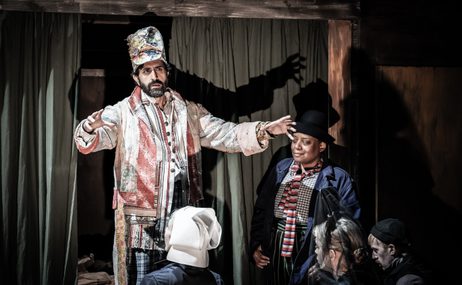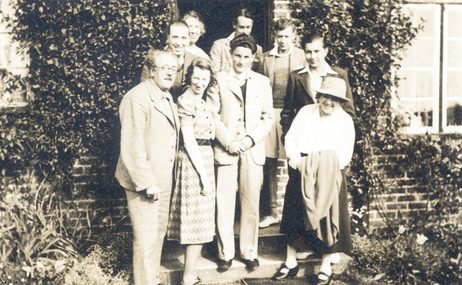Presented by Clare Hammond
Diversions, originally subtitled ‘concert variations’, is written for piano and orchestra and was commissioned by Paul Wittgenstein, the pianist who had lost his right arm in WWI. The piece is written for the left-hand only. Wittgenstein, the brother of the philosopher Ludwig, was a somewhat demanding commissioner and his relationship with Britten was often prickly. He had similarly difficult relationships with other composers who wrote works for him, including Ravel and Prokofiev – in fact, Wittgenstein never played the Prokofiev work, claiming he ‘didn’t understand a note of it’. Clare Hammond, our presenter this week, is a great champion of the piece and has played it many times. In the film, she outlines the theme and variation structure and describes how Wittgenstein would introduce his own cadenzas in between movements to give him a more prominent role; and how he also felt his single-handed playing would be drowned out by the orchestra. However, Wittgenstein’s fears were misplaced: it’s a thrilling piece in performance and deserves to be better known than it is. The variations range from playful (No 8, ‘Burlesque’) to mysterious (5, ‘Chant’) and from virtuosic (9b, ‘Toccata II’) to ardently romantic (No 10, Adagio). Throughout, Diversions showcases Britten’s brilliance in writing for the orchestra, and his evident delight in weaving variations around a theme – a technique that can be found in many of his other works.
Watch more

74th Aldeburgh Festival
09 – 25 June 2023
A Song at The Red House: 'Tell me the Truth About Love', by Benjamin Britten
Soprano Elise Caluwaerts performs one of Britten's cabaret songs, with a witty text by WH Auden. Accompanied by Lucy Walker on Britten's Steinway piano…
Work of the Week 24. Violin Concerto
Presented by Roger Wright
